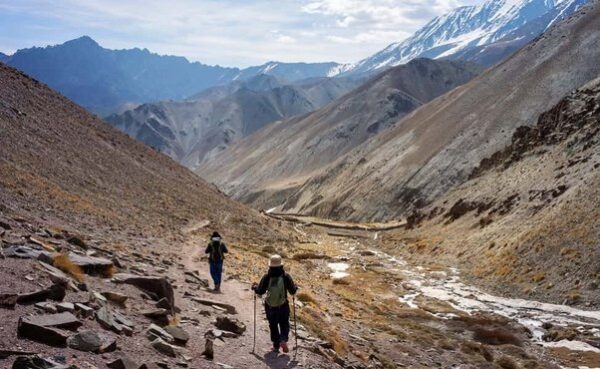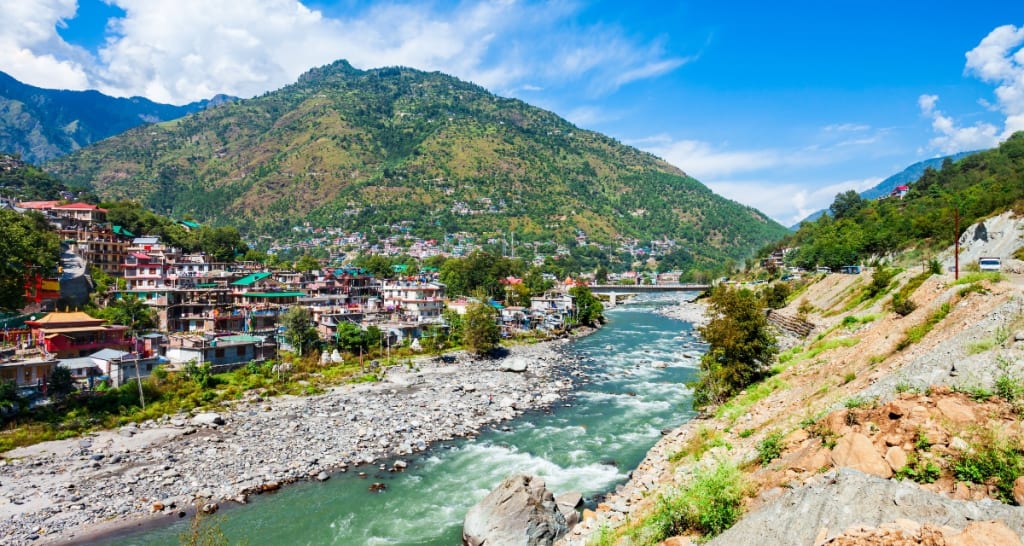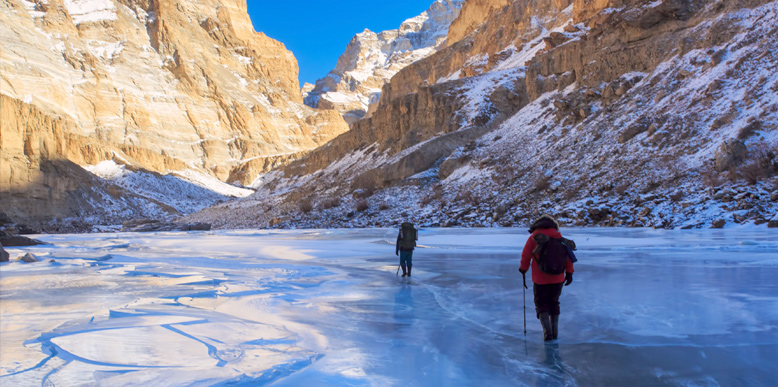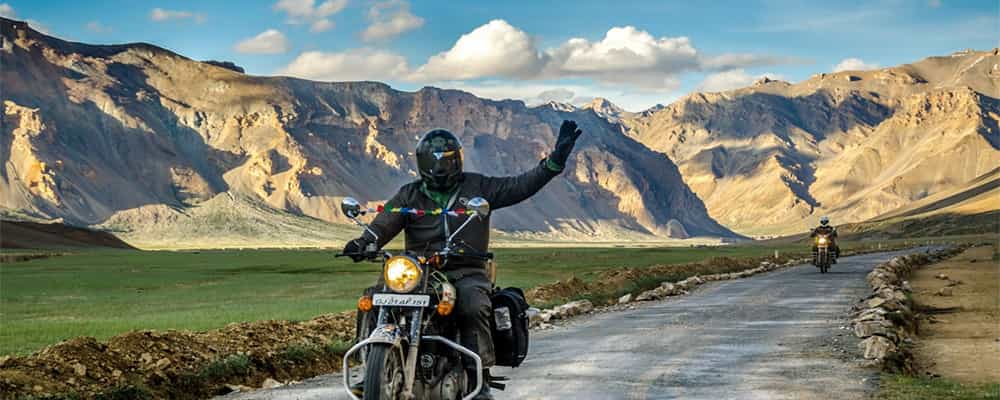Leh-Ladakh: A Adventure Paradise

Introduction
Overview of Leh-Ladakh
Nestled in the northernmost part of India, Leh-Ladakh is known for its stunning landscapes, towering mountains, and vibrant culture. Often referred to as the “Land of High Passes,” it is a region of extremes, featuring soaring peaks, serene lakes, and expansive deserts. The beautiful blend of Tibetan Buddhist culture and warm hospitality makes Leh-Ladakh a unique destination for travelers.
Why Leh-Ladakh is an Adventure Paradise
For adventure enthusiasts, Leh-Ladakh is nothing short of a paradise. Here’s why:
- Scenic Beauty: Majestic mountains and pristine lakes make for awe-inspiring backdrops.
- Thrilling Activities: Trekking, river rafting, and biking excursions keep adrenaline levels high.
- Cultural Exploration: The rich history and traditions invite exploration beyond the adventure.
For anyone seeking an unforgettable experience, Leh-Ladakh promises to engage all senses and provide unparalleled adventures in nature.

Geographical Wonders of Leh-Ladakh
Unique Landscapes and Topography
Leh-Ladakh’s topography is a marvel of nature, characterized by dramatic contrasts. One moment, you might find yourself gazing at arid desert landscapes, while the next reveals lush valleys dotted with wildflowers.
- High Mountain Ranges: The Himalayas and Zanskar ranges surround the region, creating natural barriers and breathtaking vistas.
- River Valleys: Rivers like the Indus and Zanskar carve through the mountains, offering stunning views.
Popular Natural Attractions
Several natural attractions beckon travelers to explore their wonders. For instance, Pangong Lake, with its ever-changing hues, is a must-visit.
- Nubra Valley: Known for the stunning Diskit Monastery and sand dunes.
- Khardung La Pass: One of the highest motorable roads in the world.
These locations not only showcase the region’s beauty but also invite adventure at every turn.

Adventure Activities in Leh-Ladakh
Trekking Opportunities
Leh-Ladakh is a trekker’s dream, offering trails that cater to all skill levels. From easy walks to challenging hikes, every trail unfolds stunning views. Some popular trekking routes include:
- Chadar Trek: A unique ice trek over the frozen Zanskar River.
- Markha Valley Trek: Known for its picturesque landscapes and traditional villages.
Each trek provides an exhilarating experience, along with the chance to connect with nature.
River Rafting and Other Water Sports
For those seeking water-based adventures, Leh-Ladakh has exciting options. Rafting on the Indus River brings a rush of adrenaline as you navigate through thrilling rapids.
- Zanskar River Rafting: Offers a more serene experience amidst breathtaking scenery.
- Kayaking: Ideal for those looking for a quieter water adventure.
These activities let you embrace the region’s raw beauty from new perspectives.
Motorbiking Adventures
The iconic landscapes of Leh-Ladakh are best explored on two wheels. Motorbiking along the winding roads is unforgettable, with exhilarating experiences like:
- Khardung La: Conquer the highest motorable pass in the world.
- Nubra Valley Ride: Experience stunning vistas while riding through sand dunes and lush valleys.
With the wind in your hair, every turn reveals another postcard-perfect scene. Each adventure, whether on foot or wheels, adds to the allure of this mesmerizing destination.

Cultural Heritage of Leh-Ladakh
Traditional Tibetan Buddhist Culture
Leh-Ladakh is a treasure trove of traditional Tibetan Buddhist culture, where ancient customs thrive amid breathtaking landscapes. The warm, friendly locals share their rich traditions that include vibrant festivals, colorful prayer flags, and intricate mandalas. Visitors often participate in cultural events, gaining firsthand experiences of:
- Monk Performances: Traditional music and dance during festivals.
- Local Cuisine: Savoring dishes like thukpa (noodle soup) and momos (dumplings).
This cultural immersion fosters deeper connections with the local community.
Monasteries and Spiritual Sites
The region is dotted with numerous monasteries, serving as serene retreats and centers of learning. Each monastery, adorned with stunning murals and statues, offers insight into Buddhist philosophy. Some notable sites include:
- Hemis Monastery: The largest and most famous monastery, hosting the annual Hemis festival.
- Thiksey Monastery: Renowned for its remarkable architecture and panoramic views.
Exploring these spiritual sites is not just a journey through history, but also a pathway to inner peace, making it an essential part of any visit to Leh-Ladakh.

Best Time to Visit Leh-Ladakh
Seasonal Considerations for Travelers
Understanding the best time to visit Leh-Ladakh is crucial for making the most of your adventure. The ideal season spans from May to October, when the weather is mild and mountain passes are accessible.
- Summer (June-August): Perfect for trekking and outdoor activities.
- Autumn (September-October): Ideal for witnessing stunning fall foliage and fewer crowds.
Traveling during these months enhances the overall experience, showcasing the region’s beauty.
Weather Patterns and Climate
The climate in Leh-Ladakh is extreme, with stark variations between seasons.
- Winter (November-March): Bitterly cold, with heavy snowfall; some areas may become inaccessible.
- Spring (April-May): Transitional weather as the snow melts, revealing lush landscapes.
Keeping these weather patterns in mind allows travelers to pack appropriately and plan activities that align with the local climate. Ultimately, the right timing ensures an unforgettable experience in this enchanting region.

Tips for a Safe and Enjoyable Trip
Altitude Sickness Prevention
Traveling to Leh-Ladakh means encountering high altitudes, which can lead to altitude sickness. To minimize risks, consider these tips:
- Acclimatization: Spend the first day or two resting and allowing your body to adjust.
- Stay Hydrated: Drink plenty of water to counter any dehydration.
- Avoid Alcohol: Refrain from alcohol during the first few days to aid acclimatization.
Following these guidelines can make your trip more enjoyable and free of discomfort.
Packing Essentials for Leh-Ladakh
Packing wisely is crucial for a successful adventure in this diverse region. Essential items include:
- Layered Clothing: Prepare for temperature changes with thermal wear, jackets, and breathable fabrics.
- Comfortable Footwear: Invest in sturdy trekking shoes for varied terrains.
- Sunscreen and Sunglasses: Protect your skin and eyes from the intense sun at high altitudes.
Ensuring you have the right gear will contribute to a smooth journey.
Local Customs and Etiquettes
Understanding local customs enhances respect and connection with the community. Remember to:
- Greet Respectfully: A simple “Julley” is an effective greeting.
- Respect Monasteries: Dress modestly and avoid disruptive behavior when visiting sacred sites.
- Bargain Fairly: In markets, haggling is common but always keep it friendly.
Embracing these practices will not only enrich your travel experience but also foster goodwill between visitors and locals.

How to Reach Leh-Ladakh
Transportation Options
Reaching Leh-Ladakh is an adventure in itself, with several transportation options to consider. Travelers can choose to arrive by:
- Air: The quickest way is to fly into Kushok Bakula Rimpochee Airport in Leh, with regular flights from major cities like Delhi and Srinagar.
- Road: For those seeking a thrilling journey, driving via the Manali-Leh or Srinagar-Leh highways offers stunning views and the chance for memorable stops.
Each mode of transportation adds to the excitement of the journey.
Permits and Regulations for Tourists
Before embarking on your adventure, understanding the necessary permits is essential. Certain areas in Leh-Ladakh require special permits:
- Inner Line Permit (ILP): Required for visiting restricted areas like Nubra Valley and Pangong Lake. It can be obtained at the DC office in Leh.
- Foreigners need additional permissions for certain regions, so checking the latest regulations is crucial.
These permits ensure the preservation of the delicate environment while allowing tourists to explore the fascinating culture and landscapes freely. Planning these logistics ahead of time will help create a seamless and enjoyable experience in this extraordinary destination.




